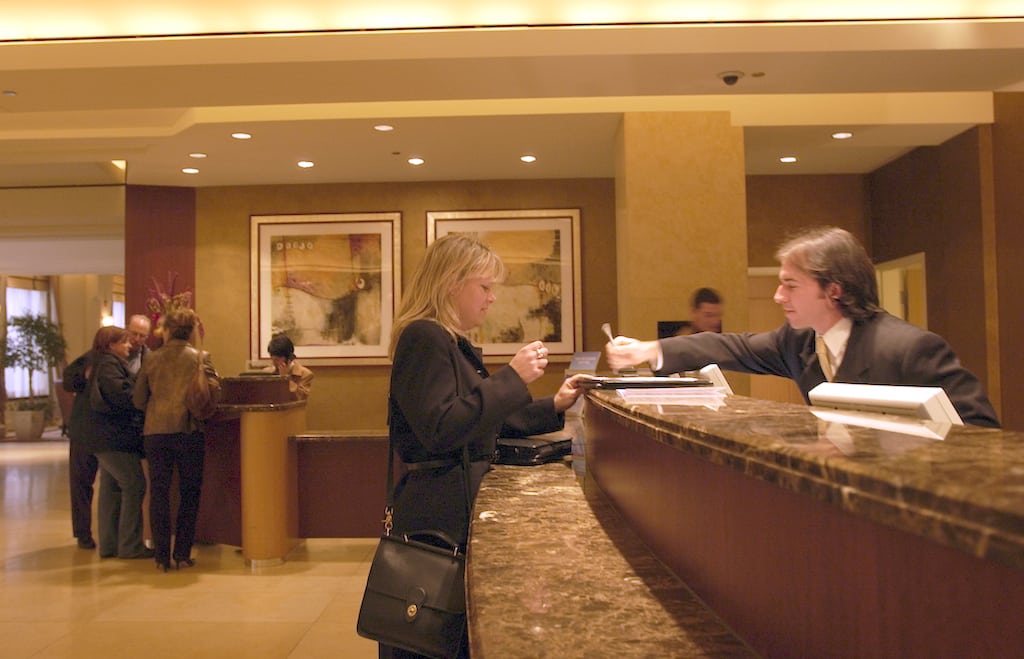Skift Take
As long as leisure and business demand for hotels keeps increasing, those who buy travel for corporations will face tough negotiations for special rates.
After months of negotiations, hotels have emerged with higher rates for corporate customers in 2016.
But increases are likely not as high as hotels would have liked, especially considering they warned of hikes in the middle of last year.
During earnings calls this month, executives from several hotel companies gave vague indications — and sometimes actual numbers — about how their negotiations with travel buyers went over the season that typically stretches from September into December or January.
Both Starwood Hotels & Resorts Worldwide and Hilton Hotels & Resorts said corporate negotiated rates for 2016 were increasing by mid-single digits.
Arne Sorenson, president and CEO of Marriott International, also said his company expects special corporate pricing to increase at a mid-single digit rate this year.
Hyatt Hotels Corporation was the only one of the major hotel companies to use an actual number for this year’s increases: Interim chief financial officer Atish Shah said he expects an increase of about seven percent.
“This outcome reflects the expansion of our brand offerings and increased traction with key volume accounts,” he said.
Host Hotels & Resorts, a lodging real estate investment trust with a multi-branded portfolio of more than 100 upscale and luxury properties, said special corporate rates are up more than 5 percent for the first quarter of 2016.
“It’s obviously hard to stimulate demand for corporate travel and history has shown us in prior times that you don’t stimulate that demand by dropping price,” Host president and CEO W. Edward Walter told analysts. “Our approach was to generally, across the portfolio, look at the different assets and take into account the market factors in individual markets. And then look to try to take advantage of the high occupancies to generate better rate growth in those corporate negotiations, but also firm up in markets where you thought you wanted it some additional accounts.”
Marwan Batrouni, senior director and area practice leader for hotels at travel consultancy Advito, said his company’s experience during the request-for-proposals stretch showed that results were market-driven.
For Advito’s more than 80 clients, who are typically travel managers, rates increased in Europe and North America but dropped a bit in Africa, Asia, Latin America, and the Middle East.
Negotiated rates increased less than a percent in Europe and 2.7 percent in North America, which was less than expected.
“That is a really good thing,” Batrouni said. Even within North America, the outcomes varied significantly from a slight decline in Houston to a 1.5 percent uptick in New York to an 8.4 percent jump in San Francisco.
“This tells us that the market, the supply and demand, really is driving hoteliers to be more firm with their rates, to be a little bit more confident with their rates,” he said.
In the U.S., corporate and contract rates represent almost 20 percent of occupied room nights and nearly 30 percent of lodging industry revenue, according to Bjorn Hanson, clinical professor with the NYU School of Professional Studies Tisch Center for Hospitality and Tourism.
Still, hotels have more power in transactions with corporate clients as occupancy has increased.
“On the buy side, the buyers go in and say, ‘We want flat rates from last year,’ and the hotels can laugh,” he said. “If we don’t take your business, we’re running over 90% occupancy in all of our key markets. A couple years ago, we really needed you to help fill rooms, but now we’re confident we’re going to get it.”
Have a confidential tip for Skift? Get in touch
Tags: business travel, corporate travel, hotels
Photo credit: An employee helps a customer check in at a Le Meridien hotel. Abel Uribe / Chicago Tribune/MCT
